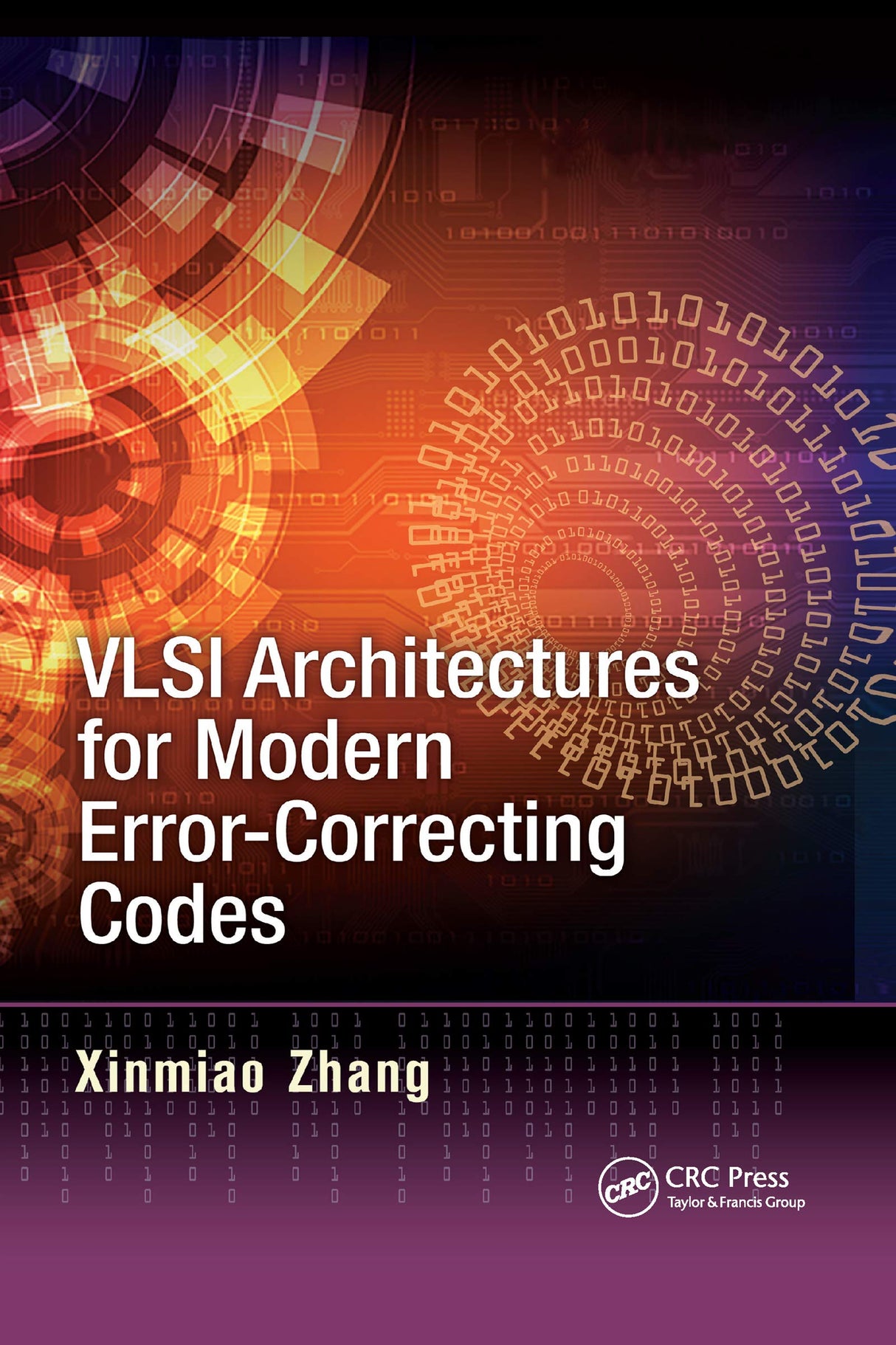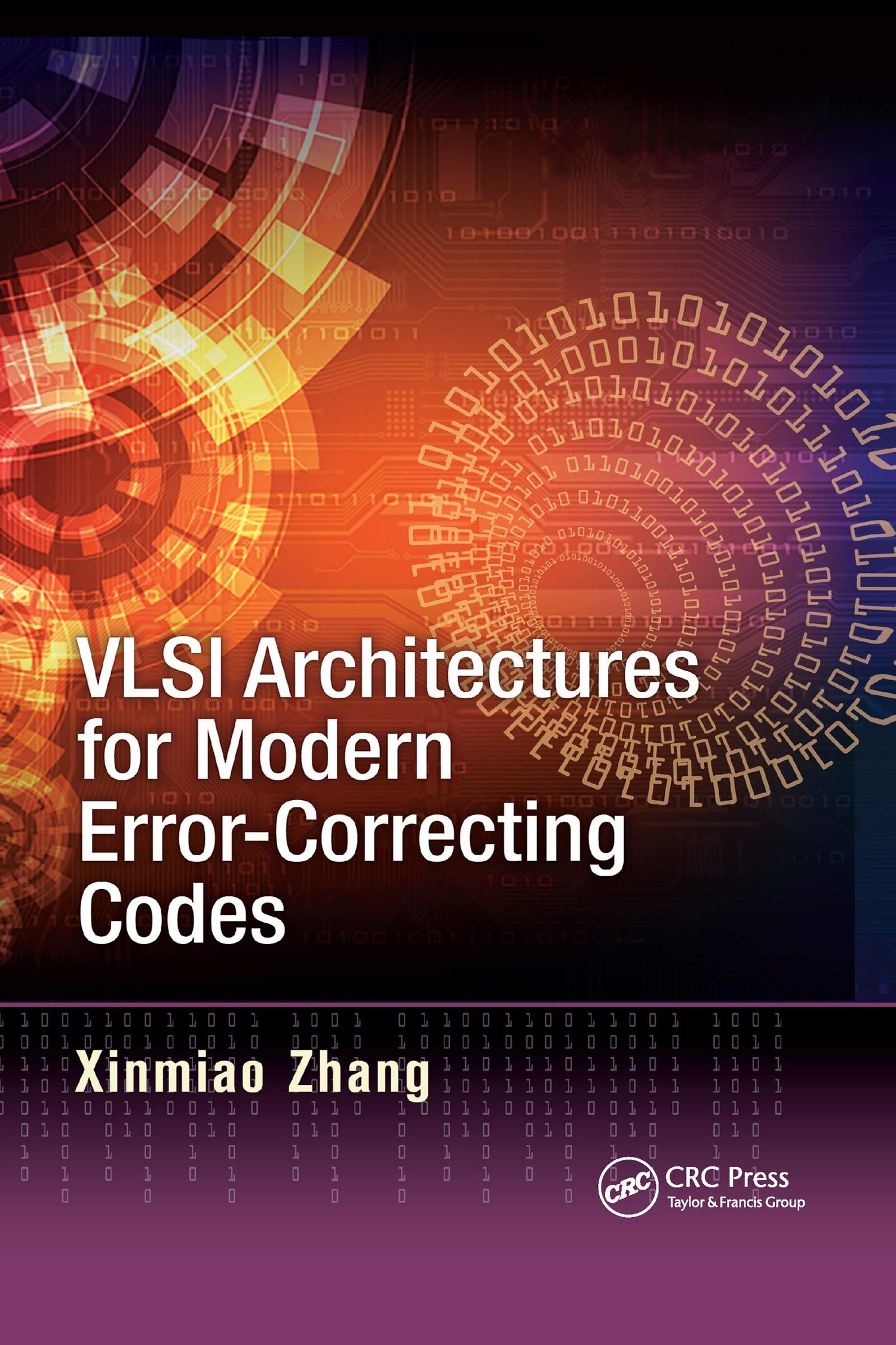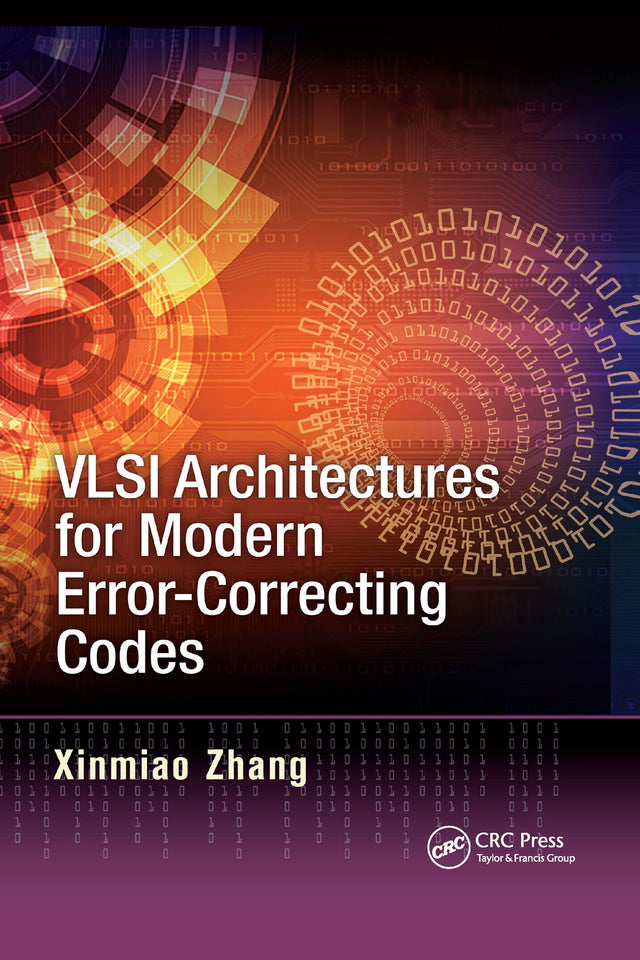VLSI Architectures for Modern Error-Correcting Codes
VLSI Architectures for Modern Error-Correcting Codes is backordered and will ship as soon as it is back in stock.
Couldn't load pickup availability
Genuine Products Guarantee
Genuine Products Guarantee
We guarantee 100% genuine products, and if proven otherwise, we will compensate you with 10 times the product's cost.
Delivery and Shipping
Delivery and Shipping
Products are generally ready for dispatch within 1 day and typically reach you in 3 to 5 days.
Book Details:
-
Author: Xinmiao Zhang
-
Publisher: CRC Press
-
Language: English
-
Edition: 1st Edition
-
ISBN: 9780367738037
-
Pages: 410
-
Cover: Paperback
-
Dimensions: 9.1 x 6.2 x 1.0 inches
-
Weight: Not provided
About the Book
VLSI Architectures for Modern Error-Correcting Codes by Xinmiao Zhang provides an in-depth exploration of the challenges and advancements in the design of error-correcting codes and their hardware implementations. With the increasing demand for codes with better error-correcting capabilities in modern digital systems—ranging from wireless communications to deep-space probing—the book serves as an essential resource for engineers and designers working in the field of error-correcting codes and VLSI design.
Zhang focuses on bridging the gap between coding theory and practical hardware implementation, emphasizing integrated algorithmic and architectural transformations that lead to improved throughput, reduced silicon area requirements, and better power efficiency. Unlike traditional texts that focus on circuit-level design techniques, this book takes a broader approach, examining how system designers can optimize en/decoder implementations for error-correcting performance and cost.
With a particular emphasis on Reed-Solomon (RS) codes, Bose-Chaudhuri-Hocquenghem (BCH) codes, and low-density parity-check (LDPC) codes, this book addresses some of the best candidates for modern and emerging applications. These codes are celebrated for their strong error-correcting performance and lower implementation complexity, making them ideal for today’s technology-driven demands.
The book also provides a wealth of examples, case studies, and discussions of various implementation approaches, enabling readers to better understand the advantages and trade-offs of different architectures. Whether you’re a graduate student, system designer, or hardware engineer, VLSI Architectures for Modern Error-Correcting Codes is a comprehensive guide to advancing your knowledge and skills in error-correcting codes and their VLSI implementation.





